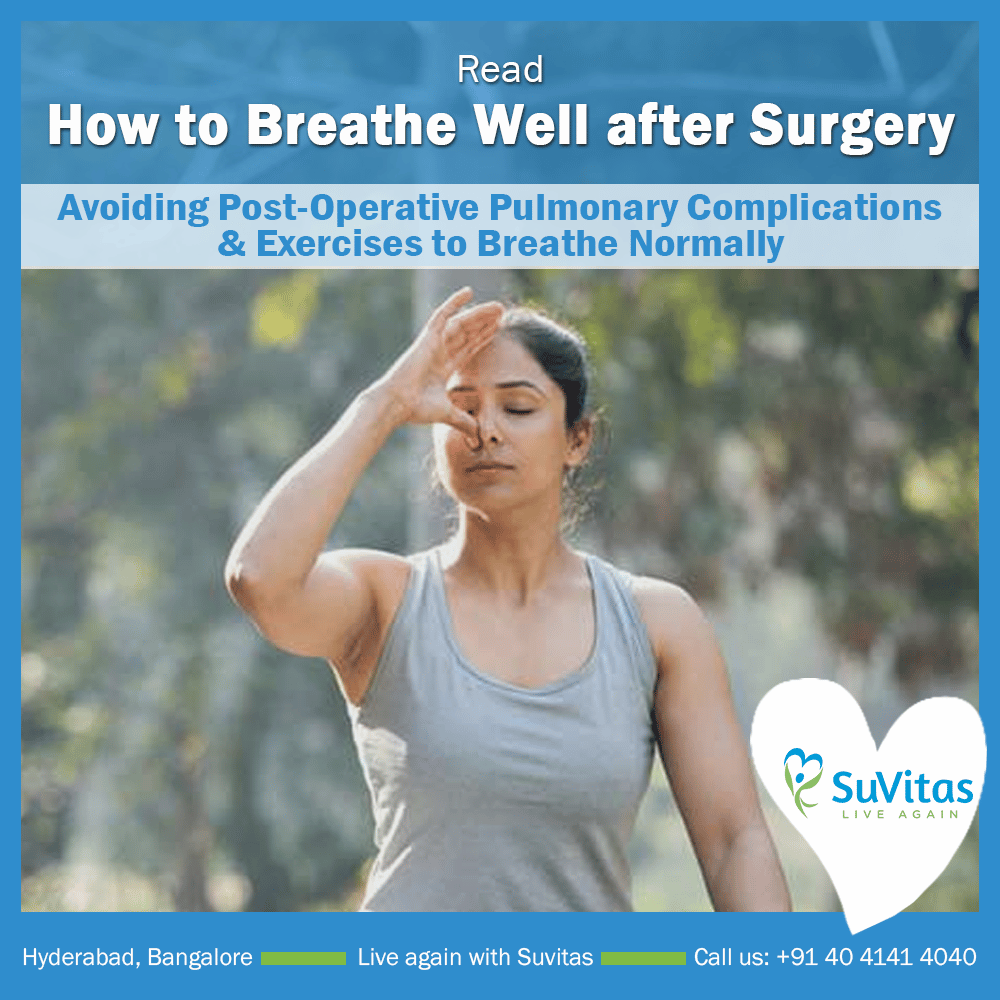The road to recovery is not always smooth and shiny.
Among the many bumps you can expect en route, are post-operative respiratory complications. For someone recovering from a major surgery, breathing and coughing can suddenly turn strenuous and painful. This is because; during induction of general anesthesia the abdominal muscles are extensively activated leading to a reduction of the lung capacity. Post operative pulmonary complications (PPC’s) are considered to be one of the major causes of morbidity and mortality in patients recovering from major clinical surgeries. Post-operative respiratory care is thus recommended to patients who are at higher risk of developing these complications.
What are the respiratory complications associated with surgeries?
Post-operative pulmonary complications are reported in varying range based on the demographics & population variants. It is observed as the leading cause of relapse and deteriorated recovery in people who survived critical illnesses. Some of the prominently reported post-operative pulmonary complications are atelectasis, pneumonia, acute respiratory distress syndrome and pulmonary aspiration.
How to breathe right after the surgery?
All kinds of breathing troubles following a surgery must be immediately brought to the attention of your medical provider. Listed below are some of the basic measures suggested to improve breathing.
1. Sit upright at the edge of the bed, with legs hanging down. If you are unable to do this, raise head as high as possible.
2. If the incision is on the chest or the abdomen, use a pillow tightly to the incision to avoid discomfort, while holding the posture.
3. Start with taking few normal breaths. Slowly breathe deeply. Hold breath for at least 2-5 seconds.
4. Now slowly breathe out through mouth making an ‘O’ shape with your lips.
5. Repeat this for at least 10- 15 minutes, and as often as possible.
Continue doing this deep breathing exercise until your doctor advises you to. While this is a simple technique to improve your breathing capacity, it will not completely treat your discomforts or risks of post operative respiratory complications.
Who are likely to develop post operative pulmonary complications?
Patients who are recovering from specific types of surgeries can be at increased risk of developing Post Operative Pulmonary Complications PPCs. For instance, atelectasis is reported more in patients who underwent abdominal and thoracoabdominal procedures. In general, asthma, smoking, age, long time operation procedures are considered to be the risk factors.
A preliminary assessment of the risk factors and the nature of surgical procedure can determine the need to establish planned post-operative respiratory care in a patient.
What does the post-operative respiratory care entail?
In post-operative respiratory care, a combination of breathing exercises and specialized device-led rehabilitation strategies are offered to the patient. A team comprising of respiratory therapists will suggest specialized care to pre-empt and avoid the incidence of post-operative respiratory care (PPCs) in patients who are bracketed in the risk group. In the absence of appropriate respiratory care, people don’t give enough attention to deep breathing and they tend to control the common urge to cough. This can negatively impact the respiratory tract. Coughing is human body’s natural reaction to eject excess mucus. Appropriate interventions in respiratory therapy will enable one to breathe deeply and better manage the intermittent coughs.
Deep breathing after surgery is crucial. It is one of the best-known healing mechanisms of the body to prevent the occurrence of lung infections. Respiratory care treatments ranging from teaching of effective breathing techniques to providing quality respiratory tools will aid a patient to effortlessly breathe on his/her own.
Check out our respiratory therapy programme for more details.

